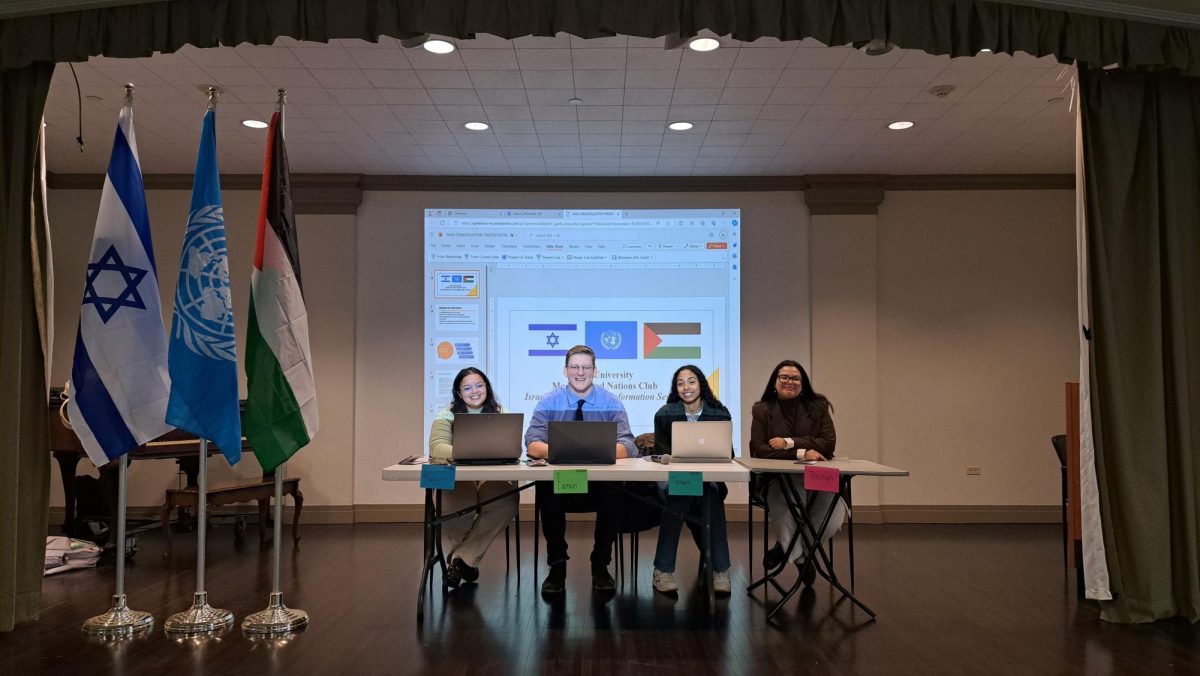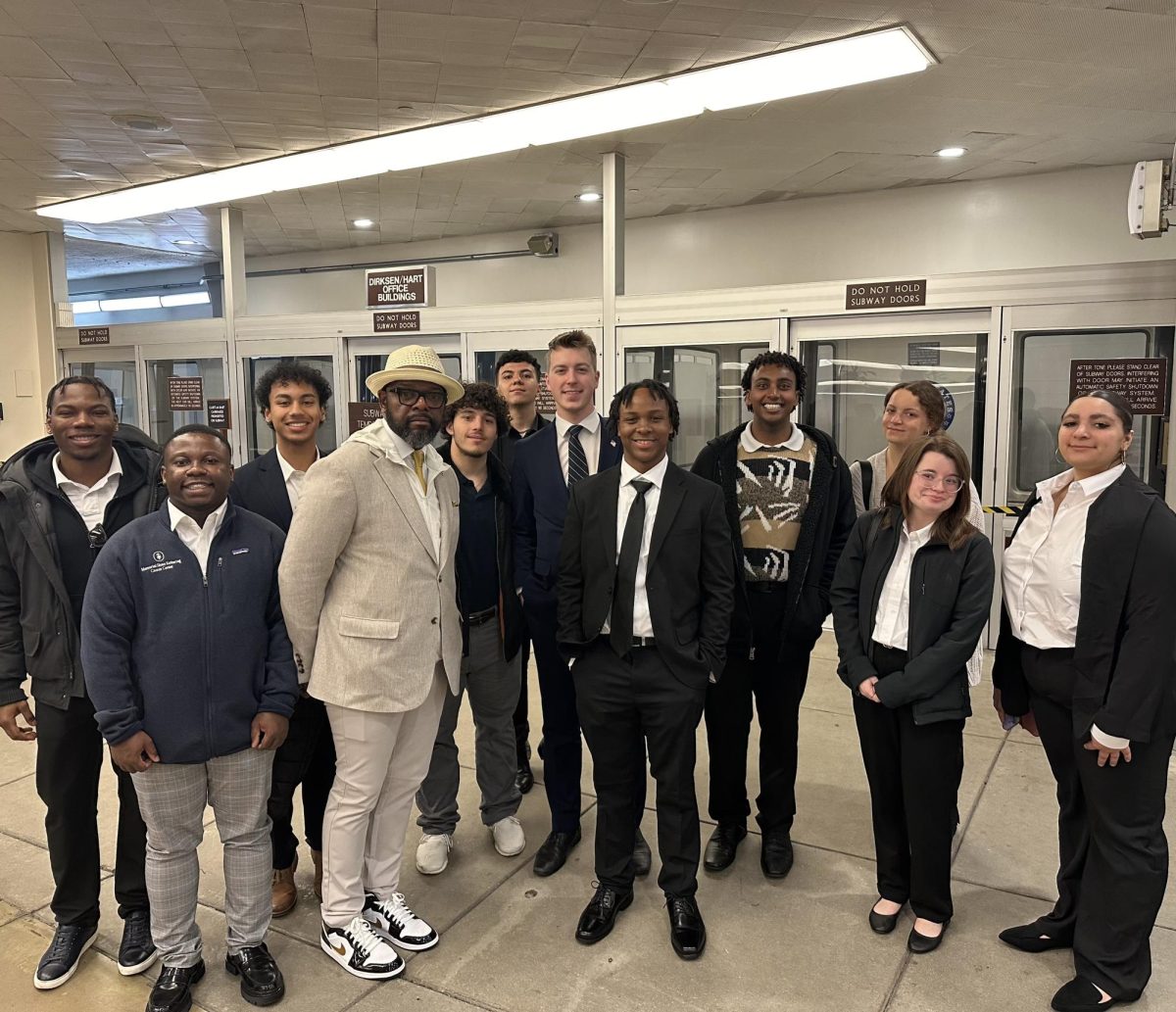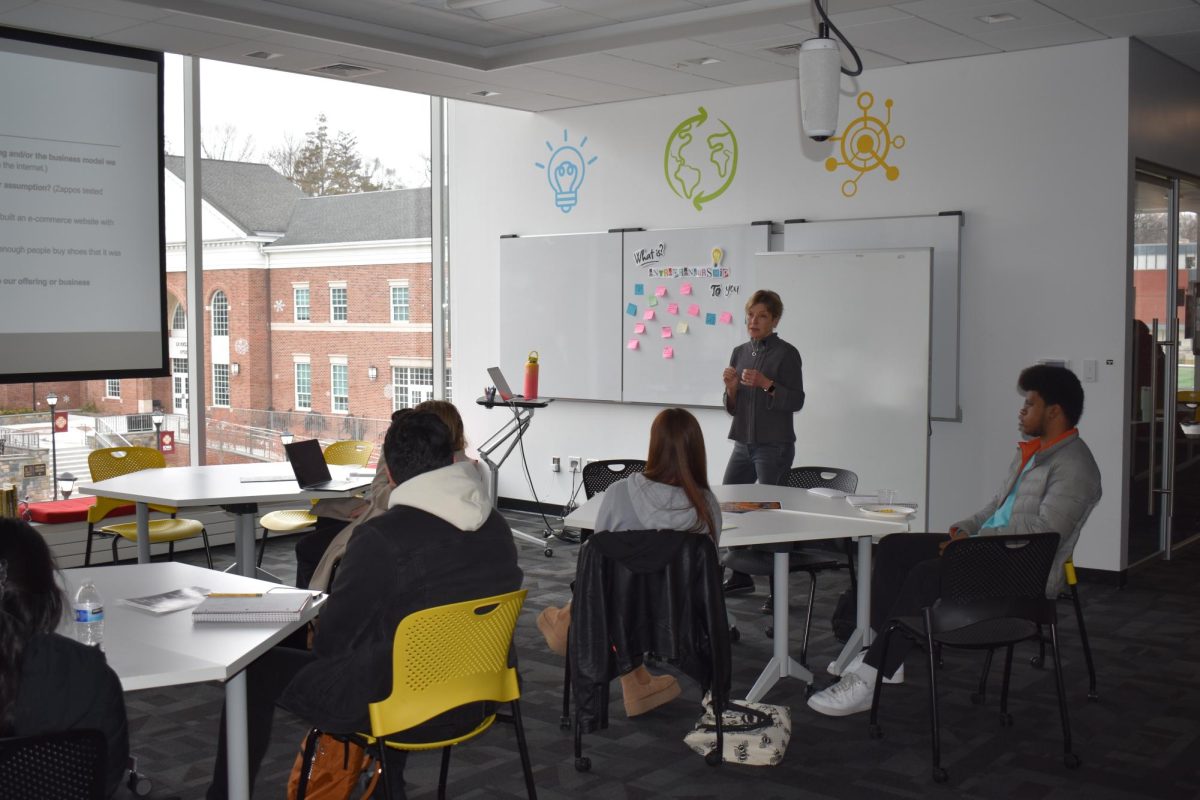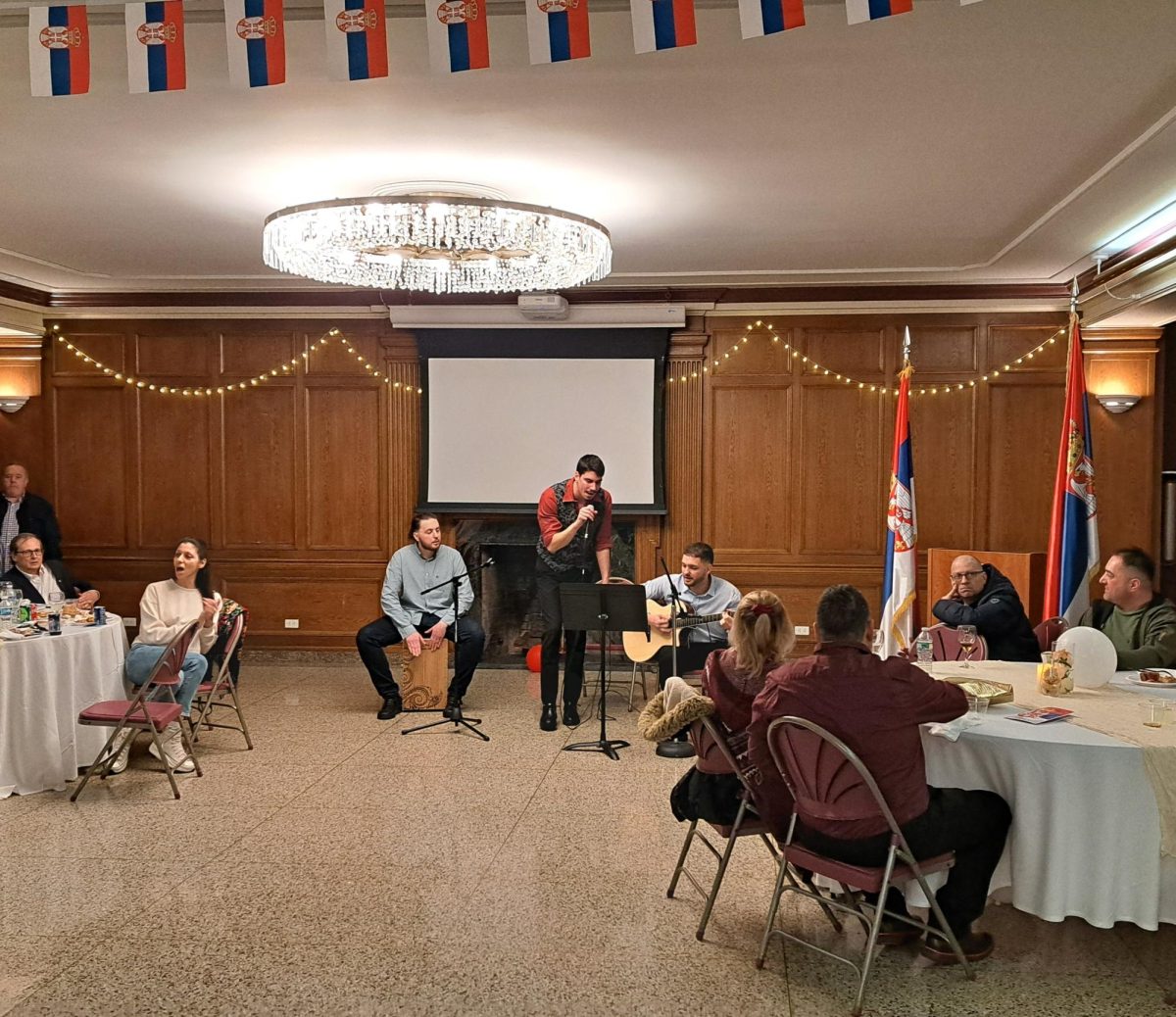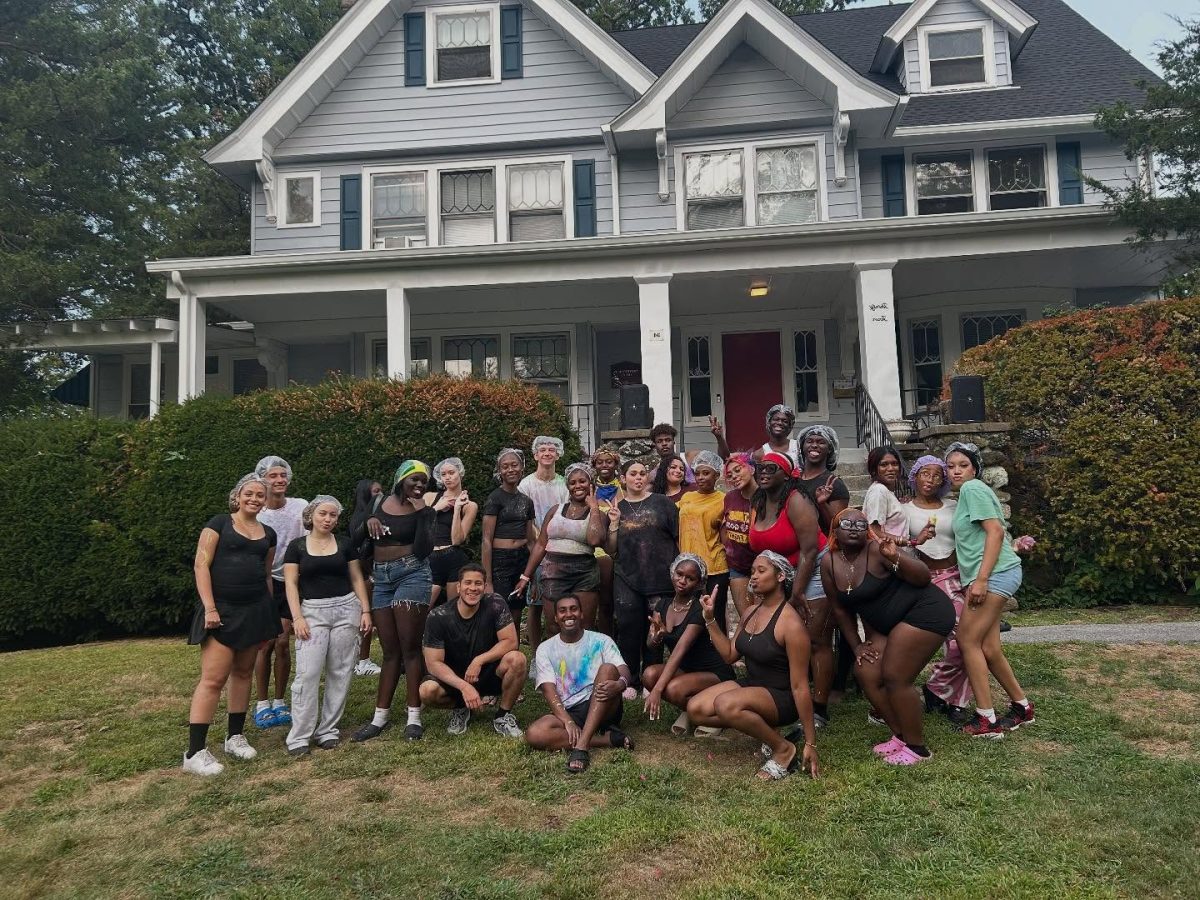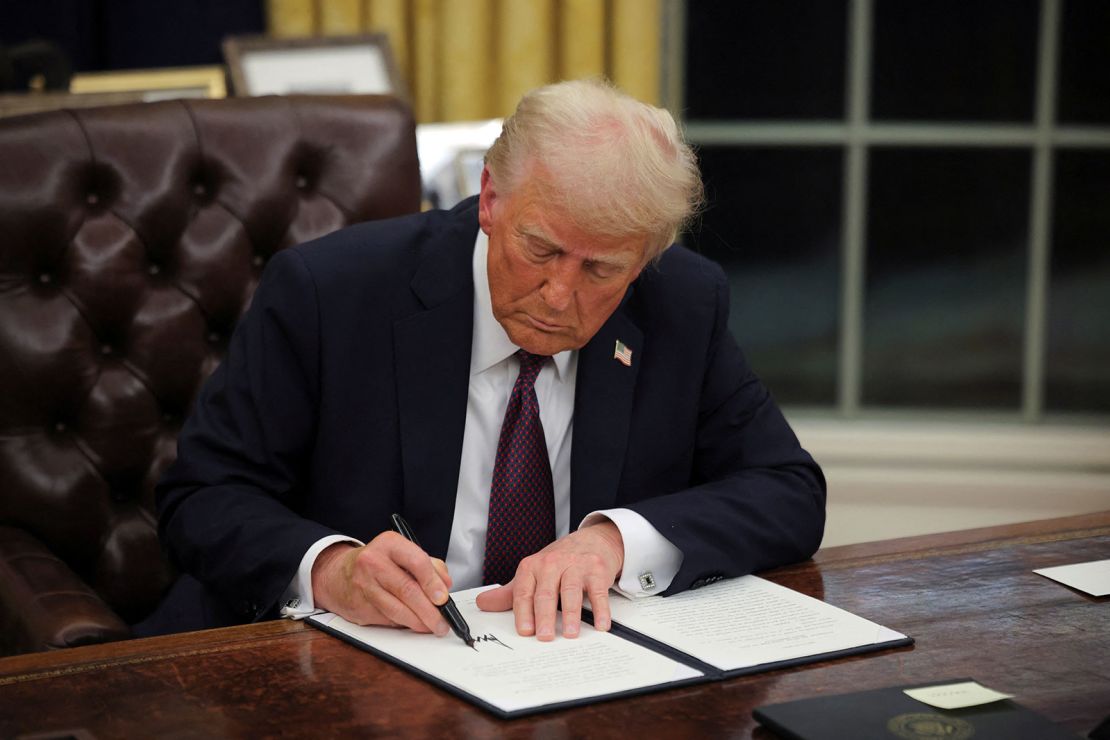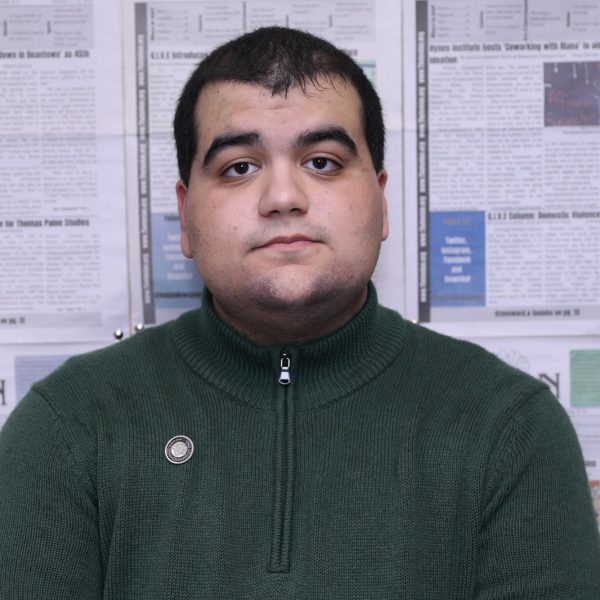As the devastating Israel-Hamas conflict was paused due to a brief humanitarian ceasefire, the Iona University Model UN Club recognized the importance of facilitating productive discussion regarding the conflict and paths toward peace, as well as raising awareness toward the unfolding humanitarian crisis.
The club hosted an information panel on Nov. 28 at noon in the Romita Auditorium in collaboration with the South Asian and Middle Eastern Culture Club, SAME, who held a bake sale to raise funds for those affected by the crisis.
“The purpose of this panel is to educate Iona University on the history, causes and complexity of the Israel-Palestine conflict,” explains Model UN Co-President Eamon Kobel, “Trying to encourage and look for a path toward peace before the conflict progresses to a more severe state is the most pressing subject of today’s panel.”
A small but eager group of students attended the panel. They were invited to ask questions either through raising their hand or writing their question(s) down on an index card. Several questions were raised that the E-board were glad to answer.
Parker Hankla, Social Media Chair Elect, moderated the panel while the rest of the E-board members presented a cursory, yet informative overview of Israel-Palestine history that furnished the historical context necessary for productive discussion of the current crisis. Key issues were discussed spanning from the end of WWII to the present day such as the historical precedent of diplomatic agreements like the Oslo Accords, which illustrate the possibility of a sustainable peace.
“The Oslo Accords weren’t a perfect peace,” says Kobel, “However, it was the first step toward the process of forging peace.”
Within the framework of seeking a sustainable peace, they mentioned the focus of the UN on humanitarian relief for affected civilian populations, and how a widespread concern for humanitarianism is the most effective remedy for extremism on all sides of the conflict.
“Extremism can come in many forms and can be a poisonous ideology to peace,” Kobel declares.
The panel concluded with a unanimous emphasis on the importance of individual research and advocacy. Model U.N. Social Media Chair, Jocelyn Arroyo-Ariza, explains how student leaders can be proactive in the discussion.
“Individual research is integral to understanding conflict,” Arroyo-Ariza remarks. “Being well-informed is the first step for advocacy, which takes different forms.”
The E-Board recommends following developments in the conflict through news sources with a reputation for independence and factual accuracy, such as A.P. News, UN News and NPR.
The Model UN Israel-Palestine Crisis Information Panel demonstrated how transparent discussion of current events nurtures open mindedness amongst the Iona community and empowers student leaders to be effective agents of change. For more information on the Iona University Model UN Club and reputable news sources to stay up to date on the Israel-Palestine Crisis, visit the official website at Ionamun.weebly.com.


